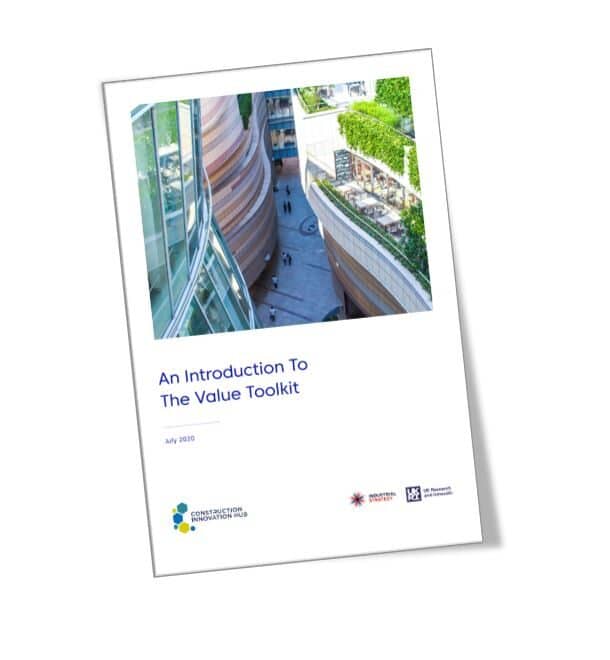
by Iain McIlwee | Jul 16, 2020 | Main News Feed, Transformation
Build UK issued a statement this week, reiterating that after everything the industry has been through over the last few months, and with more uncertainty ahead, the overriding message from the Construction Leadership Council (CLC) has been that our sector’s long‐term resilience depends on working collaboratively. It is therefore extremely disappointing to receive evidence that some companies are reverting to bad habits and squeezing their supply chains, rather than taking the opportunity to revolutionise the way in which construction projects are delivered.
In terms of practical support, the Disputes and Collaboration group for the Construction Leadership Council (CLC) COVID-19 Task Force has today published guidance on future-proofing contract amendments in the light of COVID-19. Building upon the Contractual Best Practice Guidance published by the group earlier in the year, it includes options for amending many of the JCT and NEC contracts to cater for impacts of the pandemic on delivery of the works/services.
The output cannot tell parties what to do, but can help them identify the issues and distil their negotiated position into the drafting of the contract. It is intended that this advice will provide a starting point for all parties involved as to how they will deal with the COVID-19 pandemic going forward.
The Construction Leadership Council’s guidance on future-proofing contracts can be downloaded here.
The Construction Leadership Council’s guidance on record-keeping can be downloaded here.
The Construction Leadership Council’s publication Covid-19: Managing Contractual Disputes & Collaboration – Summary Guide can be downloaded here.
The CLC statement on Payment and Contracts, supported by Build UK and FIS, reminds everyone that actions at this time will be remembered and that all firms should think hard about how their reputation could be damaged by not doing the right thing. Every business, large and small, has a critical role to play in making sure that cash continues to flow throughout the industry. FIS is encouraging all of our members to sign the RICS Conflict Avoidance Pledge (also supported by the CLC) – you can sign the pledge here.
FIS Members are reminded of the Contractual/Legal Toolkit and the Contract Health Check Tool available here. If you feel you are being treated unfairly, need contractual advice or wish to report negative behaviours, do not hesitate to contact the FIS team on 0121 707 0077 or email: info@thefis.org.

by Iain McIlwee | Jul 16, 2020 | Main News Feed, Transformation
Led by the Construction Leadership Council and supported by a Government-backed R&D programme, the Construction Innovation Hub is working with Government and leading industry bodies from the Construction sector to develop a new ‘Value Toolkit’ intended to help policy makers and clients make faster, informed decisions which incentivise industry to respond with innovative, high value solutions.
The Toolkit will support better decision-making throughout the whole investment lifecycle from business case through to procurement and delivery and operation, improving overall sector performance consistent with key policy objectives such as driving Modern Methods of Construction (MMC), delivering social impact and accelerating the path towards Net Zero.
Announced today as part of UK Research and Innovation’s Future of Building Week, the new Toolkit contains a suite of tools in four linked modules which will:
- Support policy makers, clients and advisors in defining the unique value profile for a given project and create value indices through which informed decisions can be made;
- Help clients and their advisers to select a delivery model and commercial strategy, and industry to develop business models, that best meet the value drivers of the project;
- Build on the groundwork laid by Ann Bentley and the Construction Leadership Council Procuring for Value Working Group and the IPA’s Transforming Infrastructure Performance to allow clients make procurement decisions based on the value drivers of the project and industry to shape their offers accordingly; and,
- Continuously forecast and measure value performance throughout delivery and operation, helping clients and industry to maximise value on each project and using performance data to help policy makers shape decisions on future projects.
Construction Innovation Hub Programme Director Keith Waller said:
“With the CLC Roadmap to Recovery and the supportive measures recently announced by the Prime Minister and Chancellor, the starting gun on sector recovery has well and truly been fired. It is crucial however, that we don’t lose sight of the bigger prize here – the opportunity to embed a lasting shift towards value-based decisions that drive better social, economic and environmental outcomes.
“By abandoning, once and for all, our sector’s historic affinity with cheapness and embracing a new model where delivering value drives our decision-making, we can ensure that UK construction is actively supporting the path to Net Zero, boosting productivity, delivering safe, higher quality buildings, improve social impact, supporting regeneration, levelling up and much more.
“As well as making better decisions, our Toolkit will ensure we make them faster, ensuring industry can deliver on the Government’s vital ‘Project Speed’ ambitions to stimulate our economy.
“For this to deliver real and lasting impact however, support and buy-in from policy makers, clients and industry at large is crucial. We are very fortunate to have strong support from some of construction’s leading voices like ACE, CE, CECA, CLC, as well as the Responsible Authorities we announced last week to take this crucial package of work forward.”
UK construction could soon be on the verge of a fundamental shift towards value-based decision making, thanks to a flagship initiative unveiled today by the Construction Innovation
Minister for Business and Industry, Nadhim Zahawi MP said:
“This brilliant new initiative reflects the Government’s desire to ensure we embrace a construction procurement process that has clean, green innovation at its heart.
“It complements our commitment to boost the productivity of this vital industry as part of our economic recovery. I look forward to working with the Construction Innovation Hub and Construction Leadership Council to realise this ambition.”
Iain McIlwee, Finishes and Interiors Sector CEO added:
“This Toolkit flags that there is another way, construction doesn’t have to be a Dutch Auction all about price, it has to move away from ‘building units’ at lowest cost, but ‘making places’ if we truly want the UK to be the most attractive place to live and to invest and to set up a company. To do this we have to understand where the value is, how to measure that value and the impact that our decisions through the construction process have on enhancing, maintaining or destroying that value”
- Download the Report – An Introduction to the Value Toolkit HERE
Additional information:
- The Construction Innovation Hub was launched in November 2018 and brings together world-class expertise from the Manufacturing Technology Centre (MTC), BRE and the Centre for Digital Built Britain (CDBB) to transform the UK construction industry. With £72 million from UK Research and Innovation’s Industrial Strategy Challenge Fund, the Hub aims to change the way buildings and infrastructure are designed, manufactured, integrated and connected within our built environment.
www.constructioninnovationhub.org.uk
- Key industry partners are supporting the development of the Value Toolkit as follows:
- Ann Bentley is leading on the Value Definition element of the Toolkit (in support of the sector deal ask for a consistent definition of value), drawing on the expertise contained within the CLC’s procuring for Value working group and building a consensus based approach via a Relevant Authorities model (i.e. groups of subject matter experts headed by key industry organisations – one for each capital);
- The Association for Consultancy and Engineering (ACE) has assembled a team of industry experts together to lead work on delivery models, commercial strategies;
- Constructing Excellence (CE) is drawing on its extensive membership to engage with the supply chain (consultants, contractor and manufacturers) to understand levels of capability and to identify and address key barriers to the adoption of value-based approaches;
- The Civil Engineering Contractors Association (CECA) is working directly with the Hub to address skills and training needs required to bring clients and industry on the journey and helping us plot a path to widespread adoption; and,
- The Infrastructure and Projects Authority (IPA) is leading a client advisory group of key public (TIP+MHCLG) and private clients to ensure we create something that is implementable and which aligns with and enhances (on the public side) existing procurement policy (green book rules) and decision-making processes.
- Relevant Authorities are chaired by key industry organisations who perform the role of custodians for each capital. The relevant authorities have responsibility for selecting and refining the metrics, measures and scoring profiles for each value category, working directly with input from clients/asset classes. The Hub’s dedicated team will embed the outputs of the RA’s into the methodology and tool. In the longer term, RA’s will also be responsible for benchmarking and analysis of submitted data. The Relevant Authorities are: RICS, RIBA, CIOB and Social Value UK

by Iain McIlwee | Jun 1, 2020 | Main News Feed, Transformation
The Construction Leadership Council’s Covid-19 Task Force has laid out a roadmap of proposals that will help to secure the future of construction businesses nationwide, while setting the industry on a sustainable path towards recovery.
Roadmap to Recovery details the key actions that industry, clients and Government that will support the recovery of the £413 billion UK construction and built environment sector. Front and centre is the premise that, employing over 3m workers across the UK and exporting billions of pounds of products and services, the construction sector construction is uniquely placed to drive the national economic recovery.
The strategy aims to increase the level of activity, accelerate the process of industry adjustment to the new normal and build capacity in the industry to deliver strategic priorities, including: increasing prosperity across the UK; decarbonisation; modernisation through digital and manufacturing technologies; and delivering better, safer buildings.
There are 3 phases to the roadmap, which it is suggested are delivered over a two year period:
Phase 1: Restart – increase output, maximise employment and minimise disruption (0-3 months)
Restart is now well underway, with various Government interventions in placed focussed on supporting cashflow and both phased return to work plans in place across the UK with H&S Guidance reflecting requirements across the home nations. The Roadmap recognises concerns about training and retaining apprentices and the need to urgently develop a talent retention scheme, reacting to a potential short-term dip in employment. Beyond this, the focus is on both client and industry behaviours and the need for relief measures such as those provided for by PPN02/20 and equivalent public sector procurement measures in Scotland, Wales and Northern Ireland. The recovery plan emphasises the importance of Public and private sector clients committing to following Government and CLC guidance on responsible contractual behaviour and recommends widespread adoption of the Conflict Avoidance Pledge. It highlights too the need for renewed industry commitment to ensure prompt payment to firms within the supply chain.
In a recent FIS survey, it was concerning that only 12% of respondents reported that they can continue to operate profitably in all cases under new site operating procedures. This concerning situation is recognised in the Roadmap which recommends the urgent need to undertake work on cost planning related to operating under new site procedures and to share this across the public and private sectors.
Phase 2: Reset: drive demand, increase productivity, strengthen capability in the supply chain (3-12 months)
A key theme of reset is to build on elements highlighted in the restart phase to define new ways of working to embed better and more collaborative business models and contractual terms into the sector. The theme of productivity looms large and the Roadmap identifies that new approaches will be needed to compensate for the loss of productivity due to restrictions and the importance of encouraging investment in particularly digital and offsite capabilities. The Roadmap highlights the importance of ongoing work on competency and better collaboration. It also identifies the need for stimulus with Housing and Building Safety as priority areas. The FIS has recently written to the Construction Minister highlighting Schools and accelerating the Building Safety Programme – this is picked up in the Roadmap referencing supporting towns, homes and employment to level up the UK, and invest in developing the infrastructure chapters of local growth plans.
The Roadmap also flags up the importance of delaying the Reverse Charge VAT (as reported in the Telegraph this weekend).
Phase 3: Reinvent: transform the industry, deliver better value, collaboration and partnership (12-24 months)
Seizing the opportunity to secure a better future for the construction sector is central to Phase 3. This phase is very much about tangible outcomes from a period of change and ensuring the potential of digital and offsite solutions are realised and that step changes are made in terms of the embracing net zero carbon targets and ensuring that collaborative procurement models ensure that the sector meets the requirements of the new building safety regime. It also recognises the need to modernise the training and qualifications system for construction to ensure that this is fit for purpose, and will support the delivery of the skills that the industry will need in future such as those related to the delivery of net zero carbon, and the multi-skilling of the construction workforce to increase flexibility and adaptability
The ultimate outcomes will be a more capable, professional, productive and profitable sector, which delivers better value to clients, better performing infrastructure and buildings, and competes successfully in global markets.
Iain McIlwee CEO of the Finishes and Interiors Sector, “This is a great start from the CLC and it is encouraging that this Roadmap is not a huge departure from a journey that in many ways we have already started. It builds on and re-emphasise a lot of the concepts we are familiar with from the Construction Sector Deal and locks in learnings from the work of the Building Safety Review. It has been a tough few months for everyone and it is clear that there is more challenges ahead as the industry starts to open up, but it is good to finally start looking a bit further ahead. We look forward to working with the Minister and colleagues from across the construction sector to ensuring that the spirit of collaboration is upheld and we are all held to account to ensure that the industry emerges stronger. The Roadmap starts to show us the way, but it also recognises construction is a complex ecosystem and it is beholden now on sectors such as ours to look at the detail as it applies to our community and ensure we develop sub-sector specific plans and look at behaviours and activities that align us with CLC’s overarching Recovery Plan and the one industry sentiment that underpins it”.
The task force is now engaging with Government to test how the plans proposals might be delivered. FIS is an active member of the CLC Advisory Group and participates in weekly updates where members views are carried forwards.
The roadmap to recovery plan can be downloaded here.

by Clair Mooney | Dec 10, 2019 | Main News Feed, Transformation
In a statement issued on 9 December, the Construction Leadership Council (CLC) has confirmed its support for Build UK’s Roadmap to Zero Retentions and encouraged industry to implement the new minimum standards when using cash retentions. The CLC’s support marks another significant milestone for the roadmap, which sets out specific actions in a phased approach for the construction industry to achieve zero retentions.
Recent milestones delivered as part of the roadmap include publication of the retention policies of major public sector clients in November to provide increased transparency. This followed publication of the Minimum Standards on Retentions in July which aim to reduce the existing challenges with cash retentions.
The CLC has urged construction firms and clients to adopt the minimum standards, which incorporate and build on the CLC’s commitment to abolish cash retentions.
FIS chief executive said:
“It is encouraging to see a unified approach, but I want to see a foot on the gas here. We’ve had enough of backstops and a backstop of 2025 is too far away, let’s rally and get this done by 2023. Retentions are an archaic way to manage quality and no longer fit for purpose. They undermine a positive culture and on balance I believe they contribute to the problem that they were designed to solve. Sadly I think we all know that and truth be told, all they are is a hangover of credit issues within the sector. So let’s get shot by 2023 at the latest, but also recognise that this is not the only place where the supply chain needs to improve in terms of payment. We still do the variations dance at the end of virtually every contract and use delay tactics to avoid paying til the last possible moment (sometimes sadly a moment too late for some companies), these are the shackles that hold this great sector back and contribute to stress and tension in the supply chain”
Andy Mitchell, Co-Chair of the CLC, said:
“The CLC believes that adopting the minimum standards will enable the industry to make progress towards the objective of achieving zero cash retentions by 2025. It will demonstrate commitment to the supply chain, whilst allowing the industry and its clients to adapt and improve standards of quality. Therefore, the CLC urges firms within the industry and construction clients, in both the public and private sectors, to support the roadmap and adopt the minimum standards, as a pragmatic means of improving prompt and fair payment practices and helping to create a stronger and more sustainable industry.”
Jo Fautley, Deputy Chief Executive of Build UK, said:
“It is encouraging to receive the endorsement of the CLC for the work that we are doing to move towards zero retentions as part of our roadmap. Achieving zero retentions is a vital part of becoming a more collaborative and efficient sector, and our roadmap sets out practicable steps for the industry to implement as we move towards this goal.”

by Nicky Smith | Dec 7, 2017 | Main News Feed, Transformation
Peter Aldous, a chartered surveyor before being elected to parliament in 2010, has tabled a private member’s bill to protect the millions of pounds of cash retentions withheld from construction SMEs. The Ten Minute Rule Bill will seek to amend the 1996 Construction Act and ensure that retentions within construction are held in a third party trust scheme. A key aim will be to help protect companies in the construction supply chain from insolvency and payment uncertainty. The Bill’s first Reading took place on 9 January 2018 and can be viewed via the link on the right.

Loading ...
Recent research commissioned by the Department for Business, Energy & Industrial Strategy (BEIS) has revealed that £7.8bn worth of retentions was outstanding over a three-year period. Peter Aldous said that he was concerned about the impact on SMEs: “I have been aware of retentions as an issue for a while, and with construction being a tough industry and uncertainty surrounding many aspects of the economy, small businesses need as much support as possible.” He added: “Over the past three years, £700m worth of retention payments to small businesses were lost due to the insolvency of a client, and if a small business suffers from an upstream insolvency of this kind, they are punished twice; firstly with the loss of work, and secondly with the loss of retention money. We, therefore, need action on this before more millions are lost. SMEs are the backbone of the UK economy, which is why they need support and protection. This bill is not about abolishing payment retentions; it is about making sure that people’s money is safe so that businesses can grow and invest in their future.”
Join the campaign – download the FIS letter template and write to your MP to request their support of the Retentions Trust Bill before the second reading which takes place on Friday 15 June.




